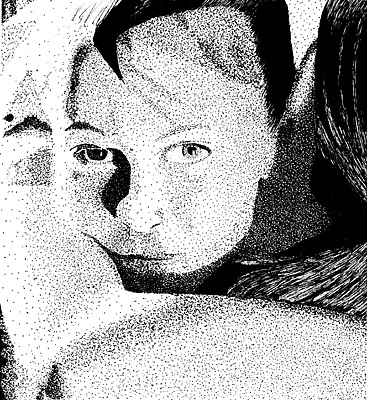All Nonfiction
- Bullying
- Books
- Academic
- Author Interviews
- Celebrity interviews
- College Articles
- College Essays
- Educator of the Year
- Heroes
- Interviews
- Memoir
- Personal Experience
- Sports
- Travel & Culture
All Opinions
- Bullying
- Current Events / Politics
- Discrimination
- Drugs / Alcohol / Smoking
- Entertainment / Celebrities
- Environment
- Love / Relationships
- Movies / Music / TV
- Pop Culture / Trends
- School / College
- Social Issues / Civics
- Spirituality / Religion
- Sports / Hobbies
All Hot Topics
- Bullying
- Community Service
- Environment
- Health
- Letters to the Editor
- Pride & Prejudice
- What Matters
- Back
Summer Guide
- Program Links
- Program Reviews
- Back
College Guide
- College Links
- College Reviews
- College Essays
- College Articles
- Back
Learning to Stand
“Sorry,” I mutter as a student slams into me, hurrying past without bothering to see what object he had struck in his path.
I walk on, my head down, my arm bruised. Why had I apologized to him? Hadn’t he bumped into me?
But I knew why. I had been meek and timid my entire life. I knew that I feared upsetting other people so much that I was willing to accept the blame in order to avoid displeasing them.
The bell rings as I enter art class.
I walk over to my cubby and gingerly lift out my unfinished sculpture, a clay mask delicately crafted with arching waves and protruding sun rays. It is at the stage where the clay is dry and extremely fragile.
I lay it down gently on the table and turn to the teacher for further instructions.
A tall boy with dull, dark eyes and a slouching posture begins playing with a roll of tape, moving it back and forth with increasing momentum. He lets go.
I turn my head and watch the tape as it ominously approaches my sculpture. It hits. Cracks, like those that creep and spread along a faultline during an earthquake, form. One of the waves and the rays crumble off the mask.
The boy’s eyes widen, his thin mouth forms an “o.” I stare at my sculpture in disbelief, then look up at him.
“Oops.”
I fasten on a tight smile and quickly assure him, “It’s okay, it’s okay…”
His face relaxes. The burden is lifted. He turns away and resumes chatting with his friends.
A raven-haired girl looks at me in astonishment, raising a thin, black eyebrow. “If I were you, I would not say it’s okay. He broke your sculpture. I would yell at him,” she asserts indignantly.
As her words sink in, something in me snaps. I turn away as tears of anger and self-pity come to my eyes. I suddenly feel trapped, bottled in my own meekness and weakness and lack of self-worth. But the moment had passed. I could not act like I was upset at the boy after I had told him it was okay. So although I had every right and reason to be resentful and withhold my forgiveness, I leave the classroom, my sculpture and my dignity broken.
That night, I replay the scene in my head. Hot tears roll down my cheeks as I recall how the boy had so easily brushed me off after I told him it was okay. I imagine that, instead of automatically forgiving the boy, I had instead “yelled at him,” like the girl had said -- if I had stood up, looked him in the eye, and said, “You know, I worked very hard on this sculpture. And for you to be carelessly rolling that tape around, destroying my work, and not thinking twice about it -- is not only rude and disrespectful but totally unacceptable!” I saw myself glaring stoically at him until he felt the gravity of what he had done and begged my forgiveness. As that fitful night wears on, I reflect on other moments -- like the one in the hallway -- where I had not asserted myself when I should have, when I had literally let someone push me around. I wipe away the tears and resolve to never again let anyone take advantage of me, to stand up to anyone who treats me with disrespect. Finally, sleep comes.
Before that day in art class, I was headed toward a miserable existence of pleasing and accommodating everyone but myself. Now, no longer will I lift guilt from others’ consciences at the expense of my self-respect. Most people learn to stand up as a baby. I never truly learned to stand, to make my presence known, until that eye-opening experience.

Similar Articles
JOIN THE DISCUSSION
This article has 0 comments.
